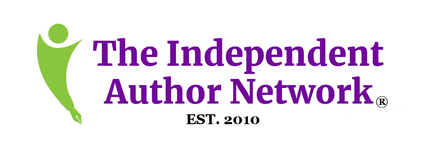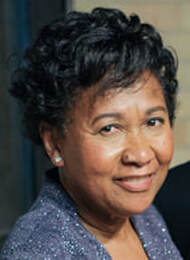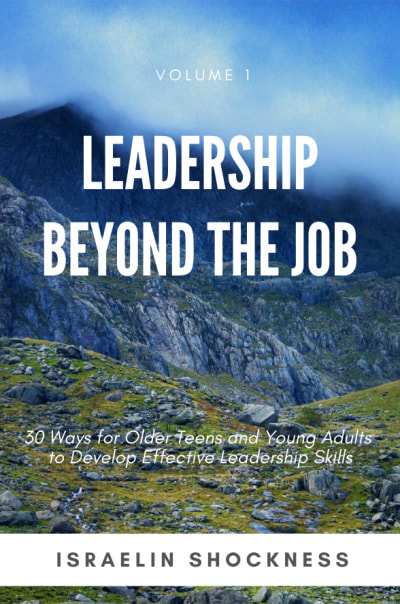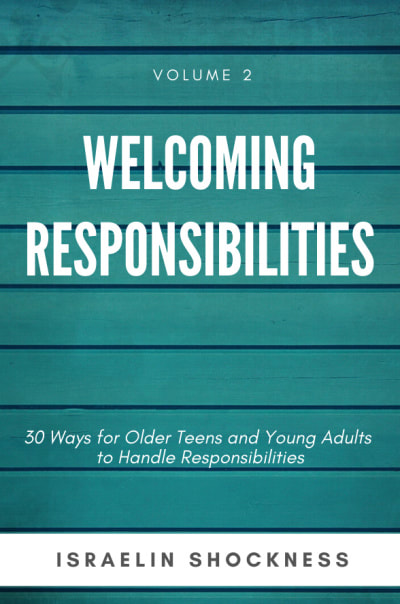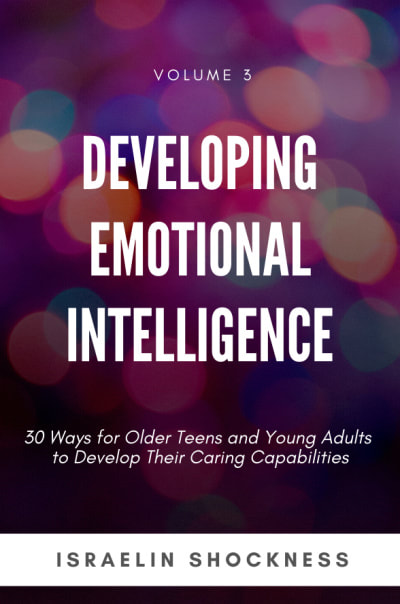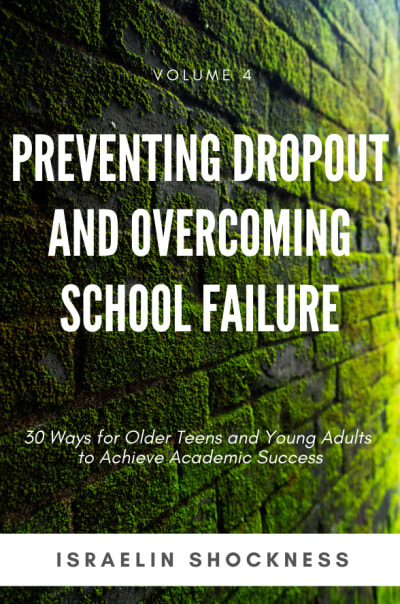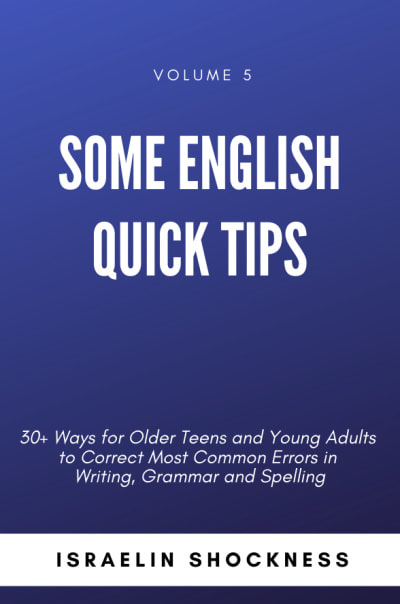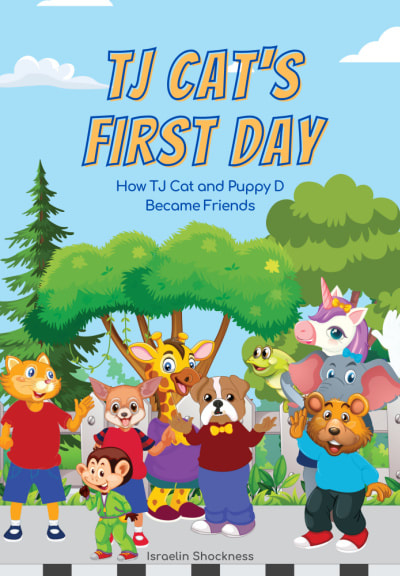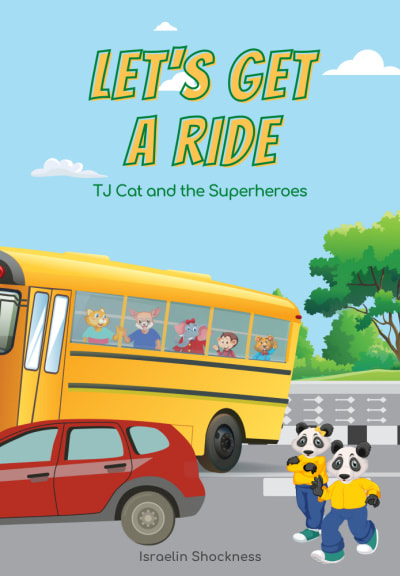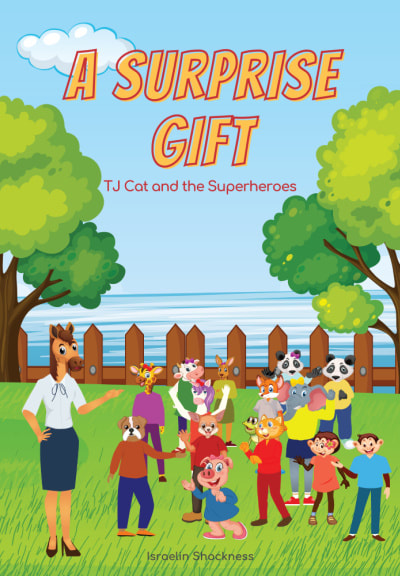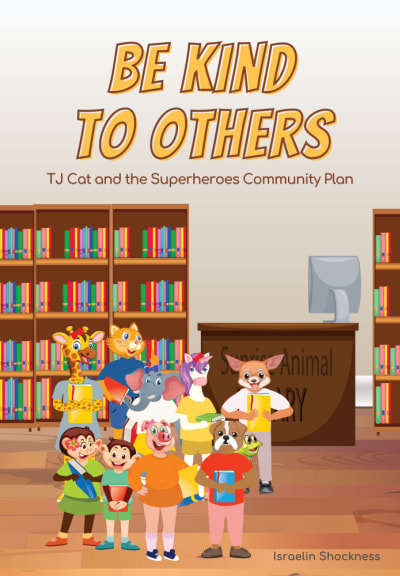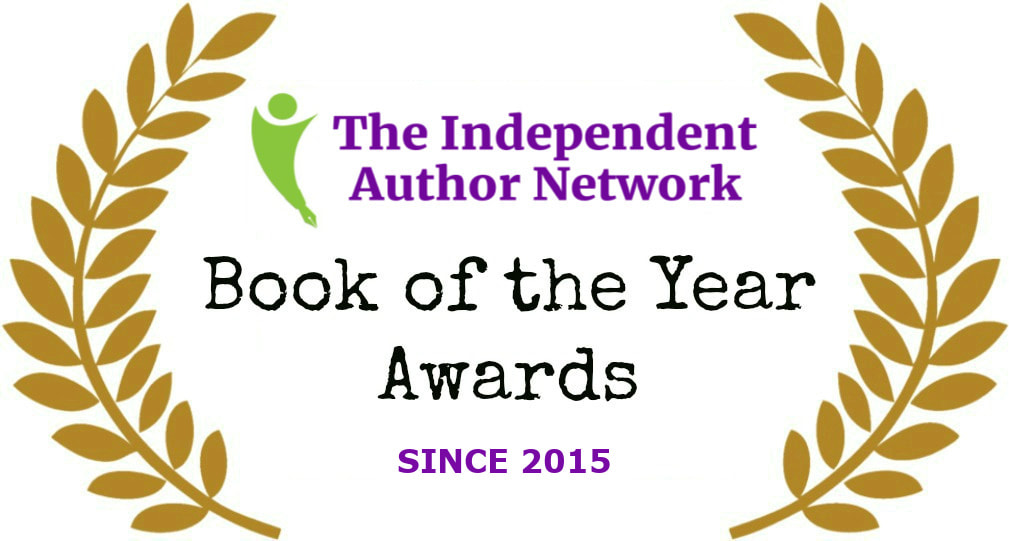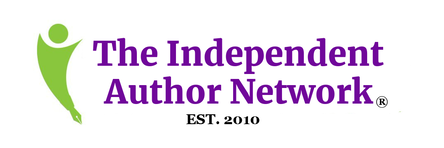Israelin Shockness
|
I am Israelin Shockness, educator, non-fiction author, children’s fiction writer, and avid reader. Having learned to read at four and fondly remembering my two daughters enjoying reading at that age, I started helping young children to read, and young people who dropped out of school to restart their education.
I know what it’s like wanting to drop out. Away from home as a teenage scholarship recipient in New York City, I decided to drop out during first-year university, not because of the work, but partly because of my inability to express my feelings, and partly because of cultural and religious differences with my scholarship committee. Dropping out seemed my only way of surviving. However, it was one of my university professors who encouraged me to stay in school, embrace my dreams and continue being myself. I’m thankful for her insightfulness and caring. My interest in youth deepened. After graduate studies and working as an educator, I volunteered in non-profit organizations. As columnist at a community paper in Ontario, I was invited to speak at a men’s prison by a young inmate, who had read one of my articles. I visited that prison occasionally over several years and spoke with many young inmates. My interest in other people’s life stories and struggles enabled me to write, on commission, book-length biographies for a WWII pilot, a Holocaust survivor, a church minister, a retired soccer coach, and an aged widowed mother (www.LifeStoryTreasures.com). This in itself was a life-enriching experience. I now write at this intersection to share my experiences and principles of successful living I learned along the way. Successful Youth Living and TJ Cat and the Superheroes are my two series, which bring together research, education, and my personal experiences and interests. I live with my husband, Maurice, in Canada, where I often help others online to write their autobiographies. |
Volume 1: Leadership Beyond the Job: 30 Ways for Older Teens and Young Adults to Develop Effective Leadership Skills
|
Education/Parenting, Self-Help, Psychology
LEADERSHIP BEYOND THE JOB: 30 WAYS FOR OLDER TEENS AND YOUNG ADULTS TO DEVELOP EFFECTIVE LEADERSHIP SKILLS is the first book in the series, Successful Youth Living. Many people see leadership as bossing others around and bullying them. However, true leadership is about influencing others to be their very best. This calls for rejecting bullying, rejecting being bossy and simply rejecting being mean to others. The objective of this book is to help young people reject qualities that undermine effective leadership and to encourage them to embrace qualities that promote a mindset of success. This book encourages young people to be intentional about their actions, realizing that they can influence many others positively. This book also aspires to be a guide to help young people develop attitudes, habits, and qualities that identify them as people of integrity, of persistence, people that are admired for their character and their ability to be positive influences on others. With worksheets and discussion topics, this is an excellent book that some teachers are already using with their students and which many students are enjoying. Parents, grandparents, teachers, librarians and other adults could introduce this book to their young people or to classes or groups. |
Volume 2: Welcoming Responsibilities: 30 Ways for Older Teens and Young Adults to Handle Responsibilities
|
Education/Parenting, Self-Help, Psychology
WELCOMING RESPONSIBILITIES: 30 WAYS FOR OLDER TEENS AND YOUNG ADULTS TO HANDLE RESPONSIBILITIES is the second book in the series, Successful Youth Living. This book opens the conversation on many important issues that often do not get discussed. While it may sometimes be awkward for adults to start a conversation with a young person, and vice versa, once the conversation is opened up, discussion flows easily. This book makes it easy for young people to grapple with issues, without thinking that the adults in their lives are nagging them. It aims to show many young people responsibilities they ought to assume, which they may not have considered before. Not only is there information about assuming responsibilities for one’s own mental health, financial matters, personal safety, work environment, and self-help, but there is also information on caring for others, bullying, date rape, taking control of one’s life, and much more. Motivational support and additional resources are provided for older teens and young adults, their parents, grandparents, teachers and other adults. There is also opportunity for peer-to-peer sharing and counselling. Parents and other adults would find this an important book for their children’s library. |
Volume 3: Developing Emotional Intelligence: 30 Ways for Older Teens and Young Adults to Develop Their Caring Capabilities
|
Education/Parenting, Self-Help, Psychology
DEVELOPING EMOTIONAL INTELLIGENCE: 30 WAYS FOR OLDER TEENS AND YOUNG ADULTS TO DEVELOP THEIR CARING CAPABILITIES is the third book in the series, Successful Youth Living. This book answers many questions that parents may want their young people to consider and that some young people may not often understand. Young people often complain, “My parents don’t understand me and they continue to nag me.” Young people may be baffled by what they consider the unusual behaviour of their friends and even parents. Many wish to understand why they get so angry and overwhelmed. DEVELOPING EMOTIONAL INTELLIGENCE: 30 WAYS FOR OLDER TEENS AND YOUNG ADULTS TO DEVELOP THEIR CARING CAPABILITIES helps young people understand how emotions affect behaviour. This book describes emotional intelligence as the qualities of self-awareness, empathy, caring and respect for others, understanding one’s own feelings, being able to consider the feelings of others, and being able to get along with others. While this book is geared towards teens and young adults, many parents and teachers have found this book useful for starting meaningful conversations with their young people. This book comes complete with information, stories, discussion questions, multiple resources, and motivational examples to encourage developing emotional intelligence. |
Volume 4: Preventing Dropout and Overcoming School Failure: 30 Ways for Older Teens and Young Adults to Achieve Academic Success
|
Education/Parenting, Self-Help, Psychology
PREVENTING DROPOUT AND OVERCOMING SCHOOL FAILURE: 30 WAYS FOR OLDER TEENS AND YOUNG ADULTS TO ACHIEVE ACADEMIC SUCCESS is the fourth book in the series, Successful Youth Living (SuccessfulYouthLiving.com). Many young people drop out of school to help their families, with the aim of going back to school when conditions improve. But conditions often do not change and life gets in the way. Many young people never realize their educational dreams. Others find the educational journey too difficult and drop out before giving the process a chance. Others drop out only as a means of taking control of their lives. If you have already dropped out, this book tells you of ways to re-engage. You may not want to be a scholar, and this is fine. This motivational book tells you how to improve your chances in the world of work. But maybe you are an excellent student and aspire to be a successful scholar. This book motivates you to be the very best you can be, and helps remove self-doubt, even if you may be slow to learn. This book is an excellent resource for young people, their parents, teachers, librarians and counsellors, for individual use or group discussion. |
Volume 5: Some English Quick Tips - 30+ Ways for Older Teens and Young Adults to Correct Most Common Errors in Writing, Grammar and Spelling
|
Education/Parenting, Self-Help, Writing/Writing Guides, Author Help
Stop Making Simple Grammatical Mistakes Many young people unconsciously make embarrassing mistakes in their writing. Teachers and professors often complain about the writing of some of their students and agonize about how to honestly evaluate their students’ knowledge of course content. Although some students ‘know’ these rules, many inadvertently still make these mistakes, resulting in poor grades. Many entrepreneurs, when writing basic reports, sales letters, or advertisements, also make these simple mistakes, often failing to impress customers. Some, in haste, overlook correcting simple mistakes. SOME ENGLISH QUICK TIPS – 30+ Ways for Older Teens and Young Adults to Correct Most Common Errors in Writing, Grammar and Spelling highlights some of the more basic grammatical rules, including parallel structure, subject-verb agreement, use of right verb tense, proper word choice, correct formation of plurals, and even correct spelling, for example, when to use you’re or your, there or their, it’s or its, and who or whom. This book is not the last word on English grammar, but it shows how to improve writing outcomes by explaining common basic rules. Mastering these rules will help students improve comprehension and get better grades on assignments. It will actually help in expressing ideas more clearly. |
Volume 6: Respect is Only Human - A Response to Disrespect and Implicit Bias
|
Education/Parenting, Self-Help, Psychology
We are not a perfect society. Disrespect to one another is commonplace in all walks of life. Racism, implicit bias, human rights violation, violence, injustice, and inhumanity are everyday practices in disrespect that are taken for granted in intimate relationships, work settings and institutions. But we are better than this. RESPECT IS ONLY HUMAN: A RESPONSE TO DISRESPECT AND IMPLICIT BIAS presents the idea that respect for self and others and a sense of justice and fairness in dealing with others would put us on the path to eradicating implicit bias, racism, and other forms of disrespect. Acceptance, not tolerance, of difference based on race, ethnicity, gender and gender orientation, nationality, religion, and physical and mental disability can help eliminate the hate and violence that often cause so much hurt. RESPECT IS ONLY HUMAN: A RESPONSE TO DISRESPECT AND IMPLICIT BIAS helps to break down some of the taken-for-granted practices that nurture disrespect. If we can identify these practices, whether we are teens, young adults, or older adults, we can make positive changes in our behaviour. We can all do this. This book is excellent as gifts, for discussion groups, or for personal use. Order your copies today. |
TJ Cat's First Day at School: How TJ Cat and Puppy D Became Friends
(TJ Cat and the Superheroes, Book 1)
|
Children's Fiction, Action, Adventure, Children's Middle Grade Fiction
TJ CAT’S FIRST DAY AT SCHOOL: HOW TJ CAT AND PUPPY D BECAME FRIENDS is the first book in the series, TJ Cat and the Superheroes (Amazon). In this story, TJ Cat is anxious about his first day at school, because he has no friends at school, but he doesn’t know if his teacher would like him. But TJ Cat soon finds out school can be fun. He not only makes friends on his first day at school, but he also becomes part of a superhero class. This book, with its captivating little superhero animals, attracts and holds the attention of young children. It also helps to develop independent, curious and lifelong readers. It teachers young children how to be brave, kind, and caring about others. The variety of little superhero animals introduces young children to diversity, empathy, cooperation, emotional intelligence, and other positive values. This book makes an excellent gift for a young child and can be a regular reader for a class. Excellent for children between 7 and 10, but would hold the interest of younger and older children. |
Let's Get a Ride (TJ Cat and the Superheroes, Book 2)
|
Children's Fiction, Action, Adventure, Children's Middle Grade Fiction
LET’S GET A RIDE: TJ CAT AND THE SUPERHEROES is the second story book in the series, TJ Cat and the Superheroes. In this story, TJ Cat and some of the superheroes, while on the school bus, observe two new little animals a long distance away from their school. “They’ll be late,” they thought. After a long while, TJ Cat and the superheroes learn about the plight of these two little animals, and decide to help them. With the help of parents and friends, and their teacher, Miss Cheval, the little animals are successful overnight. This book shows young children that they are not too small to contribute good ideas. This book helps young children to develop kindness, empathy, self-confidence, self-esteem, and self-awareness, as they take pride in their accomplishments. Parents, grandparents, friends, teachers, librarians and those who work with young children, are encouraged to give these books as gifts to their special young ones and to use as reading books for their class or groups. Friends may also like a copy. |
A Surprise Gift (TJ Cat and the Superheroes, Book 3)
|
Children's Fiction, Action, Adventure, Children's Middle Grade Fiction
A SURPRISE GIFT: TJ CAT AND THE SUPERHEROES is the third book in the series, TJ Cat and the Superheroes. In this story, TJ Cat and the superheroes are beginning to read and are taking an interest in community news. TJ Cat and Una Unicorn both saw the news and spoke to their other classmates in the Superhero Club about what they found out. Immediately, the superheroes wanted to help. Several of the superheroes came up with different plans. At last, they agreed on a workable plan, after much discussion. This book helps young children to learn to empathize, to develop emotional intelligence, and to cooperate in showing kindness to those in need. It also encourages young children to read. Young children enjoy animals and superheroes, and the characters in this series will attract and hold the attention of your young readers. |
Be Kind to Others: TJ Cat and the Superheroes Community Plan
(TJ Cat and the Superheroes, Book 4)
|
Children's Fiction, Action, Adventure, Children's Middle Grade Fiction
BE KIND TO OTHERS: TJ CAT AND THE SUPERHEROES COMMUNITY PLAN is the fourth book in the series, TJ Cat and the Superheroes. In this story, over the holidays, Ellie Elephant discovers not all little animals had a good time at Christmas. At school, Ellie tells her friends, and TJ Cat and the Superheroes go to work thinking of ways of helping. TJ Cat’s dad, just back from the Navy, is a good resource. TJ Cat and the superheroes soon come up with a good idea. With the support of the community, they succeed in developing a plan. TJ Cat and the superheroes show that little ones could have good ideas and accomplish big things. The whole community of Sunshine Village is proud of this accomplishment. This story reinforces the idea that “anyone can be a superhero” by being brave, kind and caring about others, and it teaches young children to be empathetic, kind, and helpful to others. |
